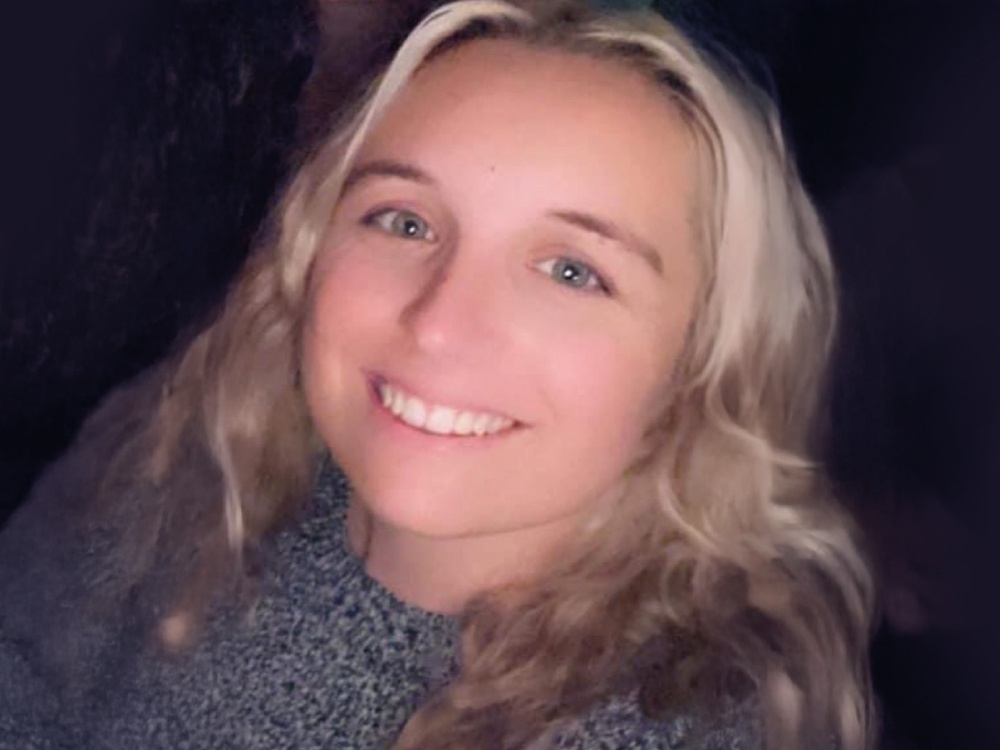When Mary began losing her vision back in 2022, her world changed in an instant. “I suffer with migraines, and one day after passing out I realised I couldn’t see out of my left eye,” she explains. “My mum always taught me to do the hand test – that’s putting my hand over each eye to check which one is affected – because she also lost her sight about six years ago.”
Like her mother, Mary was diagnosed with Leber’s hereditary optic neuropathy, also known as LHON – a rare form of mitochondrial disease that causes sudden, permanent sight loss. “The doctor looked at my optic nerves and straightaway said I’d manifested the same syndrome as my mum. They knew because it was passed down from her, and she’d already had all the tests. What was most scary was how quickly it happened. It wasn’t like a gradual loss of sight. It was really sudden.”
Fighting for access to treatment
Mary’s consultant recommended a treatment called idebenone, but at the time of her diagnosis the drug wasn’t available on the NHS in England, although it was in Scotland and Wales. Her local NHS Trust refused funding five times. “Eventually my consultant told me to move to Wales because they had it on the NHS there,” Mary recalls, laughing. “I thought, I’m not having this! So I went to the local press, I approached my MP and I started a petition. And that’s when the whole community came together.”
Mary’s determination, combined with her lived experience and her mum’s story, made her a powerful advocate. The LHON Society, a patient-led support group, put her forward to share her voice as a patient expert in the approval process with NICE (the National Institute for Health and Care Excellence). In the meantime, Mary was able to source idebenone privately.
“My mum was trialled on the drug,” she explains, “but it was too late and the treatment didn’t work for her. We had some leftover, so my consultant suggested I try it. I think it took about three days for it to make a difference. When I was first diagnosed, it literally felt like clingfilm was stuck on my eyeball, but when the drug started working, I just couldn’t believe it. I stopped taking it about two years ago and my sight is still at a stable level now. I was really lucky.”
A milestone decision from NICE
This August, after years of campaigning, NICE finally approved idebenone for use on the NHS in England for LHON patients, ending years of postcode inequality and opening up access to treatment. For Mary, the news was deeply emotional.
“Obviously it was a team effort,” she says humbly. “There were many others involved who did a lot more than I did. But I feel really happy, and I feel like I’ve made a difference. I’ve helped many people by being on the local news and raising awareness. Over the past few years lots of them have reached out to me and been rooting for me. They were all messaging to ask if there was any news about the decision, and I think that’s when it hit me. When I was finally able to share the announcement, I got quite emotional, especially when my consultant told me I’d been an inspiration. I didn’t think I could do it – but I did.”
While there’s still much work to be done to raise awareness of LHON and all mitochondrial diseases, Mary’s proud that her fight will help others in the future. “I just wanted them to know it shouldn’t be a postcode lottery. And I wanted us to be noticed. Because when people ask me what’s wrong, they’ve usually never heard of LHON.”
Looking ahead with hope
“I also want more healthcare professionals to research our disease,” Mary continues. “I was told by another consultant that my situation wasn’t an emergency. Well, it is – it’s my vision. I think my own consultant’s drumming it into people now. He’s got three other junior doctors who want to learn about LHON, and they all question me about it every time I go in for a check-up now!”
Mary believes this decision is part of a bigger step forward for mitochondrial disease research and treatment breakthroughs. “Hopefully it's going to be a bright future. I know there are advances in genetic testing and even babies born via IVF to remove faulty genes. These are huge steps.”
For Mary though, the heart of the story is simple. “This wasn’t just about me,” she concludes. “It was about my mum, my family and every other person living with LHON. I’m so grateful to the LHON Society for putting me forward. This decision will change lives.”
Mary’s right – this decision will change lives. Her determination has turned a deeply personal challenge into a milestone for not only those affected by LHON but the whole mito community. A huge thank you to Mary, and to everyone else who shared their story to help ensure idebenone gained the approval it warranted. Your courage is a reminder that real change begins when one voice refuses to be silent.

